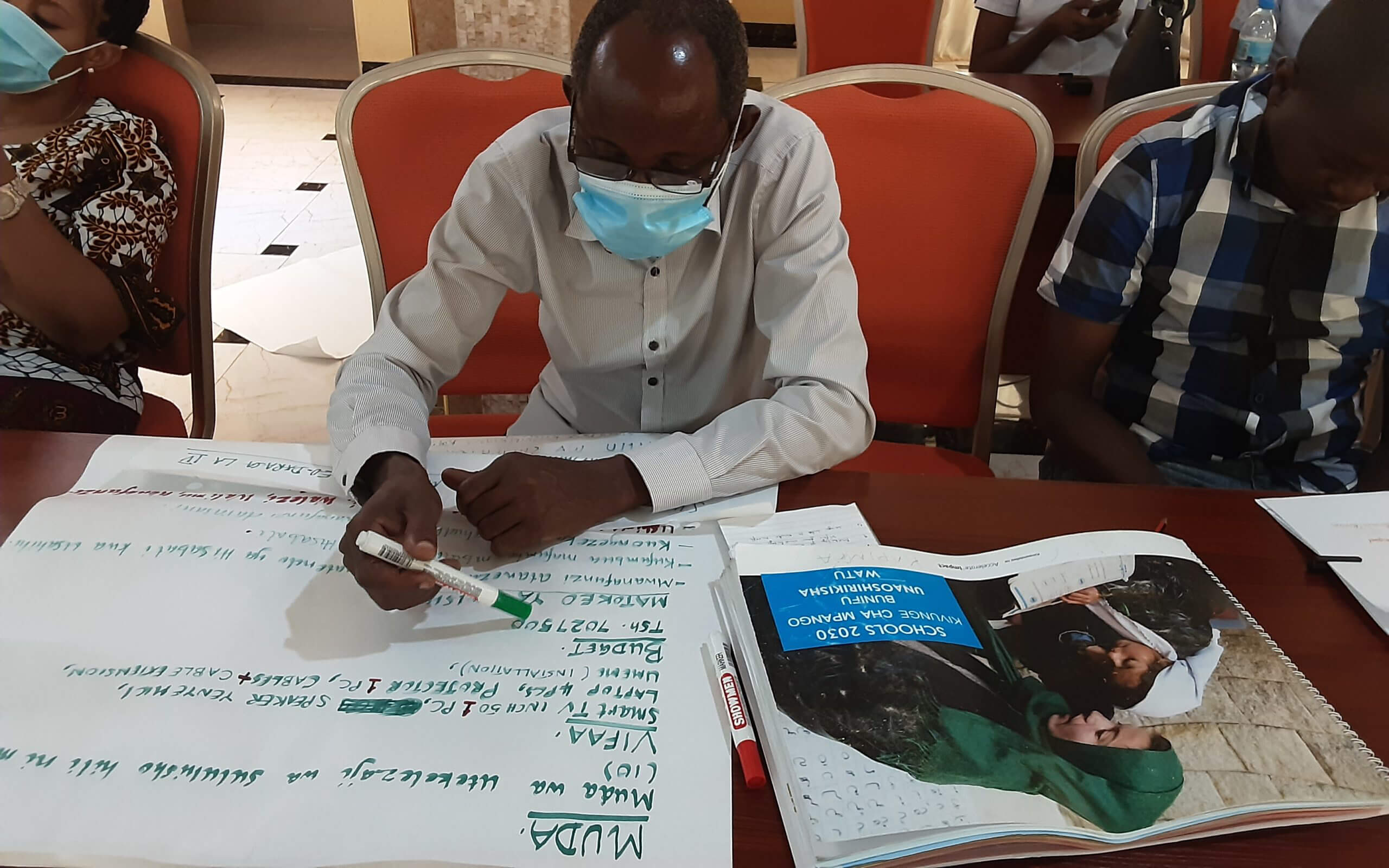Teachers from across 100 schools and youth centres in Dar Es Salaam and Lindi have begun the exciting prototyping phase in their innovation journey.
After several weeks undergoing the intensive training course, using the free, open source Schools2030 Human-Centred Design (HCD) Toolkit and with continuing support from AKF facilitators, the teachers were ready to put some of their ideas into action. In September this year, they presented their prototype innovations in preparation for the next stage of funding and implementing in real-world settings, allowing them to test their efficacy on students’ learning.
At the outset of the programme, Schools2030 facilitators worked alongside the National Advisory Committee – a select group of government partners, local and national education groups, NGOs with country expertise and other individuals – to choose five key learning domains in each group that align to national curricular priorities across the three age groups identified as key transition years.
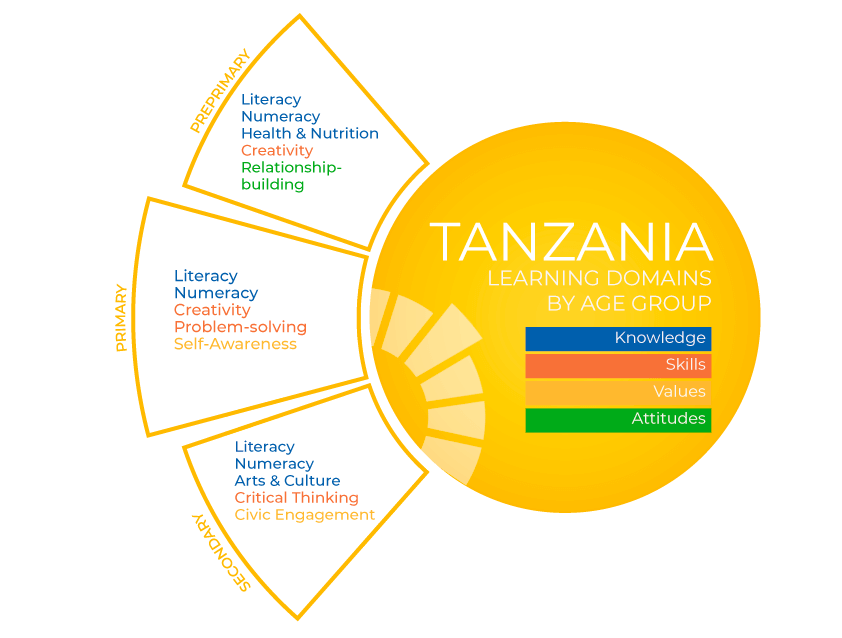
Literacy and numeracy were prioritised for every age, as well as a variety of non-academic proficiencies including creativity, critical thinking, relationship-building and civic engagement (see right).
The innovations the teachers designed were aimed at addressing these specific domains and follow a series of rapid assessments that were carried out to measure individual student’s abilities in each of these core areas. Once the innovations have been implemented, the teachers will then carry out formative assessments to track their effect on holistic learning, and then adapt and iterate where necessary.
What was striking to notice about the prototypes and the teachers’ ideas was how many of them were tactile, interactive and playful. This demonstrates a shared understanding at both the local and global level that children’s learning is most effective if they can engage with learning in a meaningful, collaborative and joyful way and see first-hand how their knowledge applies in real world situations.
During the presentations, teachers were asked to explain what domains their innovations addressed, as well as demonstrate how they fulfilled the criteria for further funding, including being playful, child-centred, inclusive, gender-sensitive, low-cost and scaleable. A selection of 100 of these teacher-led innovations are highlighted below.
Micro-Innovations Pre-primary Level
At the pre-primary level, 90% of the innovations addressed students’ abilities in the 3Rs – Reading, Writing and Arithmetic (addressing the Literacy and Numeracy domains within the Schools2030 Tanzania framework). Most of them contain teaching and learning materials and offer different modes of lesson delivery, with a focus on being child-centred and interactive. Many of them also demonstrate an integration of non-academic competencies. These innovations included:
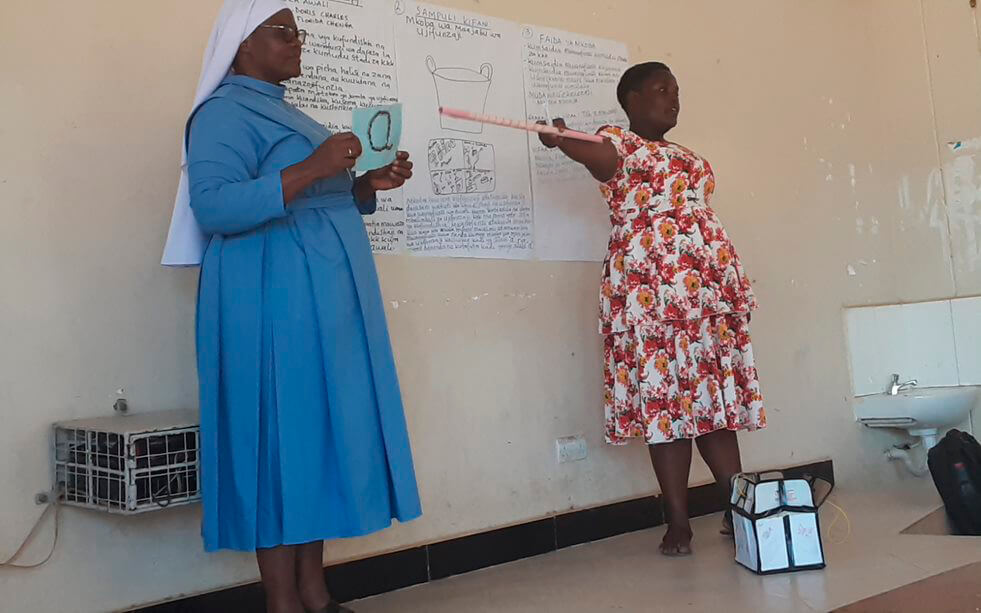
Wonderful Learning Bags – labelled and organised bags full of learning tools for specific competencies that engage every student in the learning process and address a lack of classroom materials for Mtanda Pre-primary School.
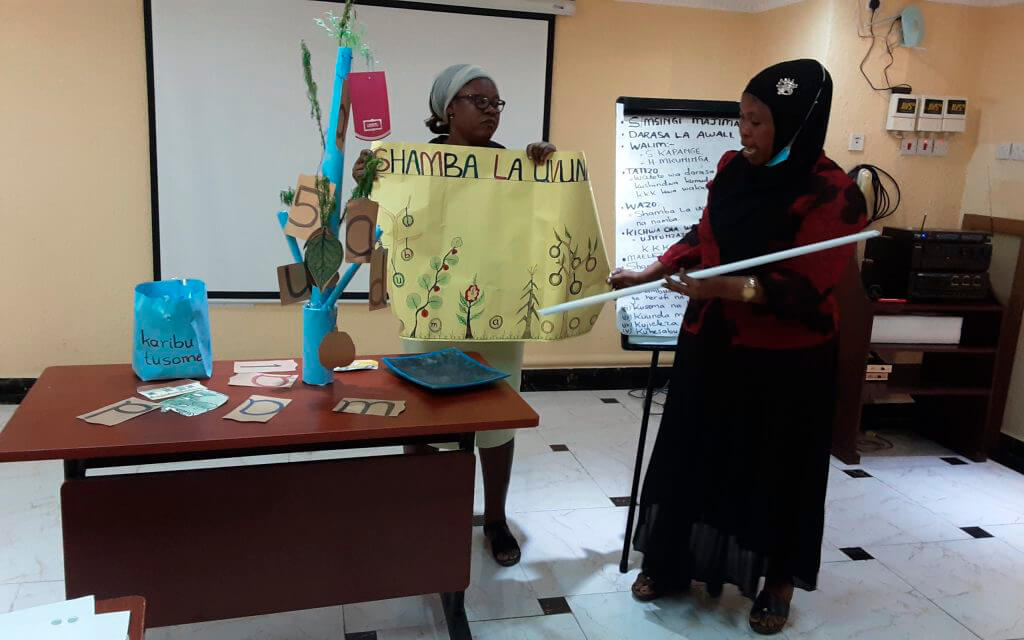
The Garden of Words and Numbers – a physical space for the children of Majimatitu Pre-primary School to explore shapes, objects, artificial plants, fruits and other items, labelled with words, syllables, letters and numbers. By interacting with the objects, the children children can more easily identify letters and numbers and use them to practice forming words and basic mathematical functions.
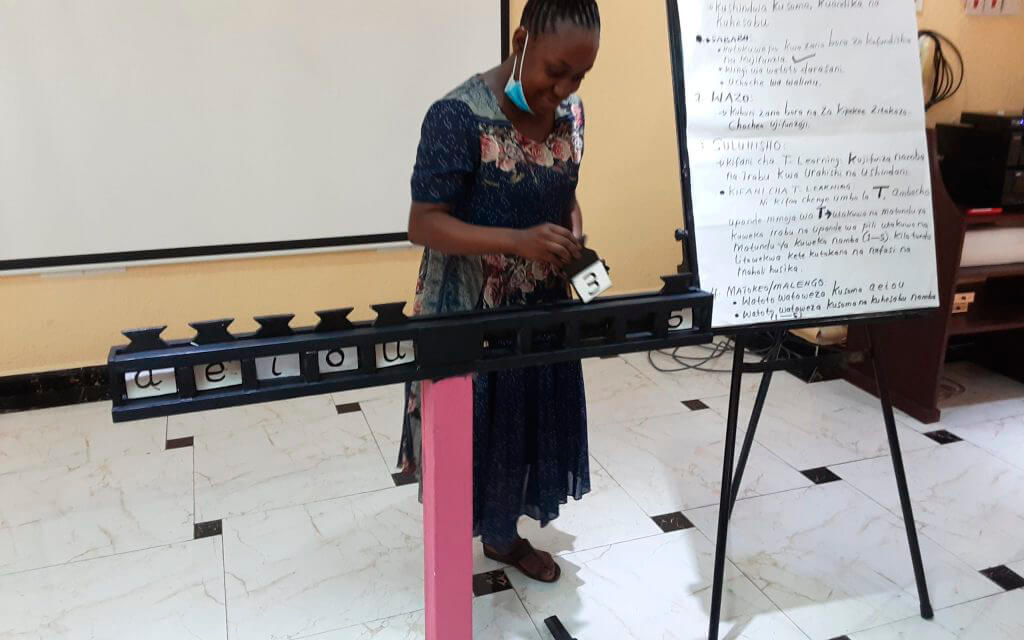
The T Learning Model – almost like using an app but without the need for expensive digital technology, the T learning model allows the children at Toangoma school to pick letters and numbers to create words and basic maths formulas.
Micro-Innovations Primary Level
At the primary level, or Standard IV Class (age 10), around 50% of the 30 innovations address challenges around language and mathematics, while other teachers’ ideas focused on soft skills like problem-solving, creativity, communication, and self-expression. For primary students, they included:
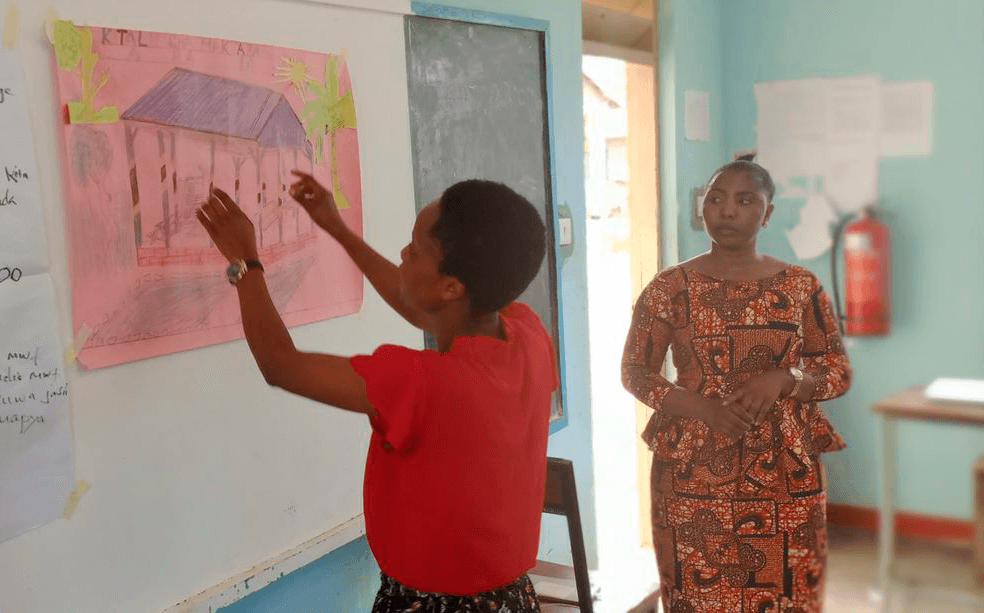
The Library Nursery – The Library Nursery, developed by teachers at Mitanga Primary School, is a particular area for students to read storybooks; students will be divided into five groups, and every week students will read one book. Each Friday students will be asked to present the story to the class to express what they have understood.
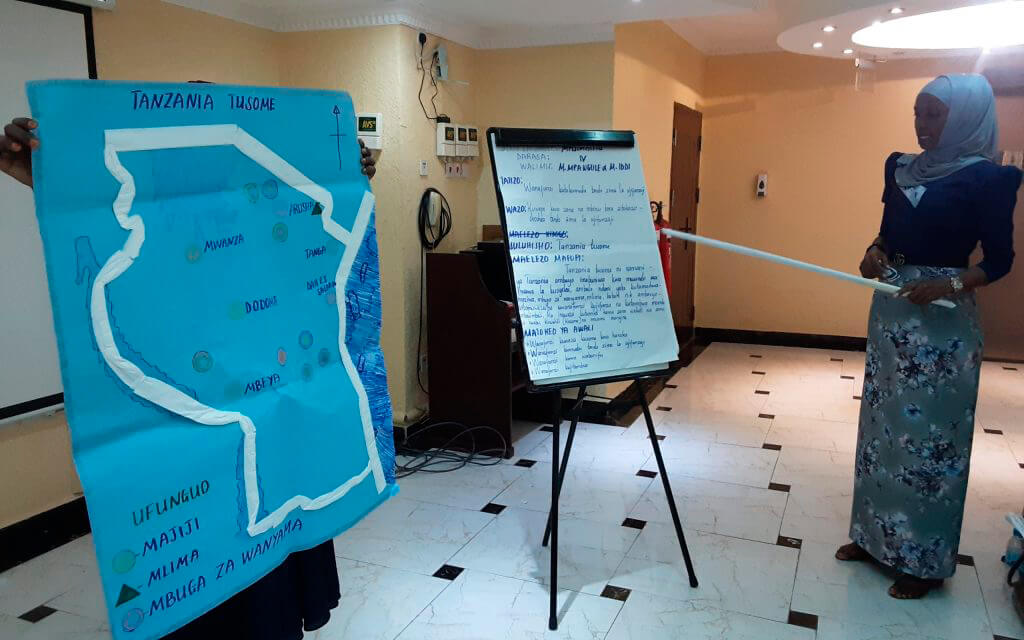
The Knowledge class (‘Darasa Maarifa’) – The Knowledge class addresses the need for more child-centred teaching methodologies at Majimatitu primary school, where reading, writing and critical thinking capacities need attention. The class will be equipped with various teaching and learning materials for all subjects as well as games and activities to stimulate children’s learning.
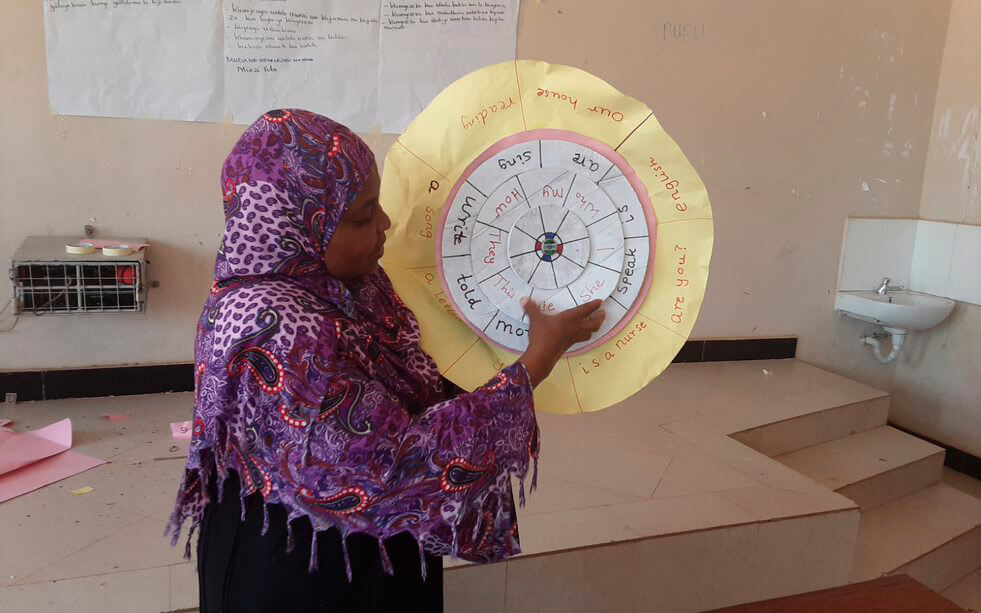
The Learning Wheel – The Learning Wheel is a puzzle game with words on a wheel, which students can turn to create meaningful sentences by arranging randomly placed words on the wheel. Mpilipili Primary School students will be encouraged to become more confident with their speech and sentence-building, in a fun and interactive way.
Micro-Innovations Secondary Level
For the 15 year old age group, many of the teachers focused on the need to practice speaking and writing in English. (approximately 60%). The rest of the innovations focus on students supporting the acquisition of non-academic skills and attitudes such as critical thinking, civic engagement, communication and problem-solving Some of the innovations for secondary level included:
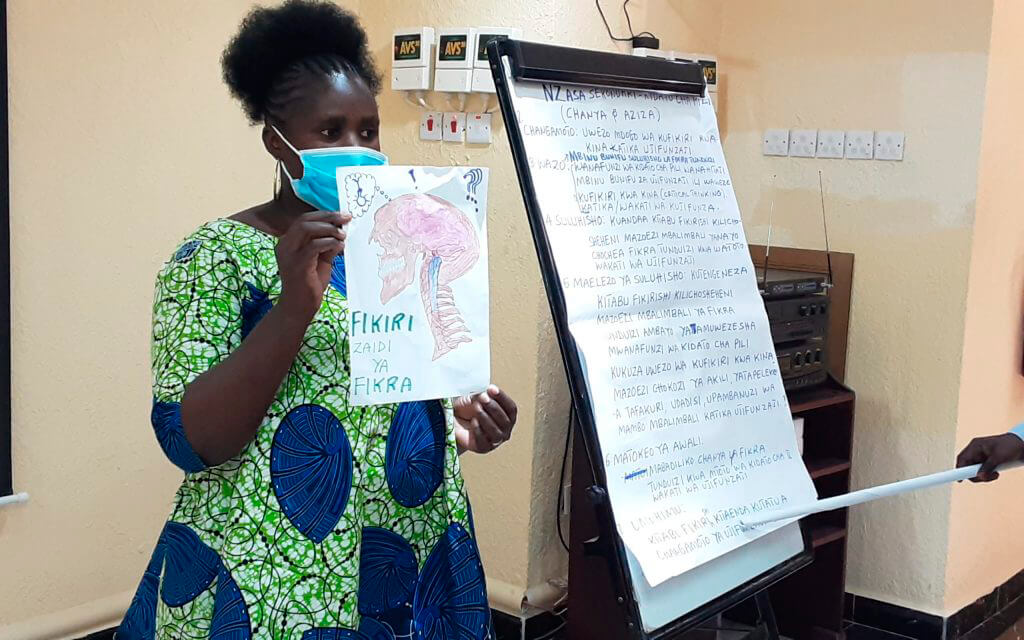
Critical Thinking Storybook – Designed by teachers at Nsaza Secondary School, this innovation aims to improve critical thinking among students through imagery and story-telling. By reading, narrating, brainstorming together and drawing their responses to the books they read each week, the students build confidence and creativity, and improve their ability to collaborate, empathise and problem-solve.
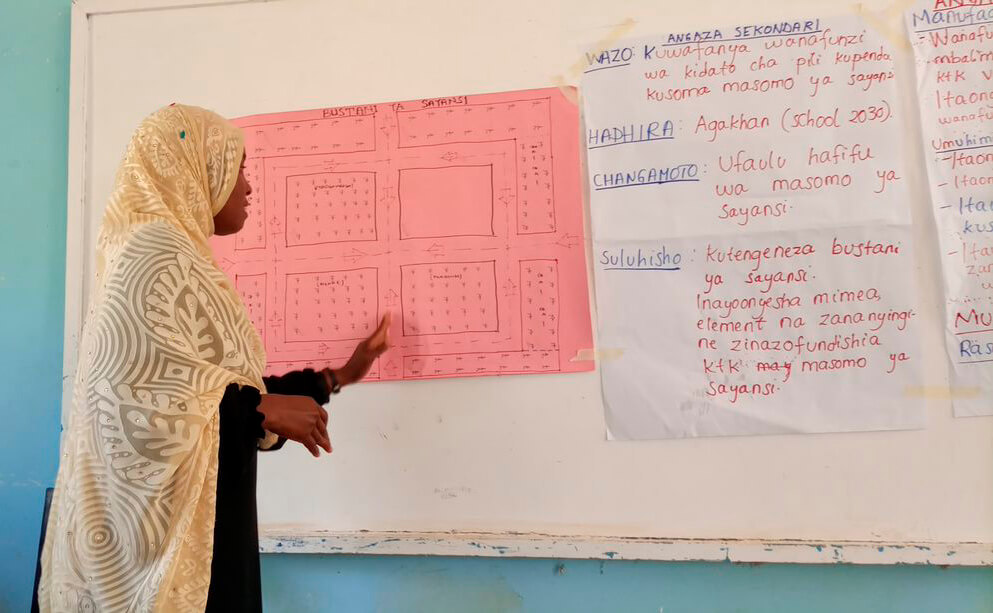
The Garden of Science – At Angaza Secondary School, teachers chose to focus on supporting students with biology, chemistry and physics. The Garden of Science aims to encourage interest in and ultimately increase achievement in science subjects by providing an interactive space for students to improve their understanding of various topics, for example, classification (how living organisms are organised according to their behaviour) and photosynthesis (how plants make food).
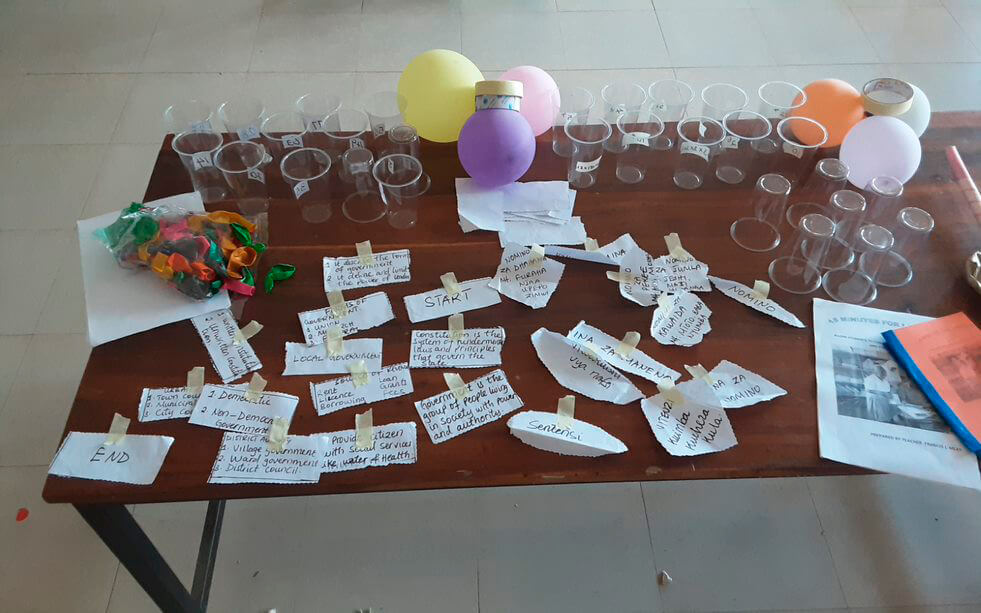
15 Minute Handbook for Learning – Developed by teachers at Mingoyo Secondary, the 15-minute handbook for learning will guide teachers on how to use educational games to help students improve levels of personal attention, focus, concentration, passion, creativity, and effectiveness. The lessons are based around the idea of learning sprints that can be done with any short 15 minute break – thereby advancing opportunities. They involve games, puzzles and other opportunities for interactivity.
With the schools and youth groups now engaged in testing and iterating their ideas, Schools2030 will begin to procure the resources needed to begin formal implementation. Using the assessment tools developed in partnership with our Schools2030 Global Learning Assessment partner, Oxford MeasurEd, and supported by the in-country Schools2030 Regional Assessment Lead, Emily Tusiime, formative assessments will be carried out to determine the efficacy of these prototypes, which can then be adapted and iterated as needed.
What was striking to notice about the prototypes and the teachers’ ideas was how many of them were tactile, interactive and playful. This demonstrates a shared understanding at both the local and global level that children’s learning is most effective if they can engage with learning in a meaningful, collaborative and joyful way and see first-hand how their knowledge applies in real world situations. Though the contexts might be different, and the innovations may need to be adapted to account for difference in context and priority, it speaks volumes about how replicable the ideas could be.
To that end, Schools2030 is delighted to be working alongside Swedish NGO, HundrED, to ensure that all 100 innovations will be stored, codified and made available via the Faved platform – a new teacher to teacher portal for sharing innovations across the world. The pilot of the Faved platform will be be launched at the RewirED summit in Dubai in December 2021 and we look forward to seeing you there virtually for this milestone in Schools2030’s journey and more. Schools2030 partnership with HundrED stems from the generous support and vision of the Jacobs Foundation, one of the founding members of the Schools2030 global coalition of philanthropic partners. We cannot wait to see more and more innovations for learning emerge across the Schools2030 network of 1000 schools and look forward to featuring them soon!
